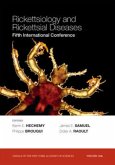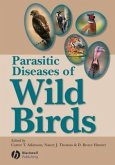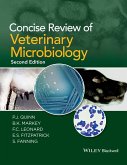Biology and Diseases of the Ferret, Third Edition has been thoroughly revised and updated to provide a current, comprehensive reference on the ferret. Encyclopedic in scope, it is the only book to focus on the characteristics that make the ferret an important research animal, with detailed information on conditions, procedures, and treatments. Offering basic information on biology, husbandry, clinical medicine, and surgery, as well as unique information on the use of ferrets in biomedical research, Biology and Diseases of the Ferret is an essential resource for investigators using ferrets in the laboratory and for companion animal and comparative medicine veterinarians.
The Third Edition adds ten completely new chapters, covering regulatory considerations, black-footed ferret recovery, diseases of the cardiovascular system, viral respiratory disease research, morbillivirus research, genetic engineering, hearing and auditory function, vision and neuroplasticity research, nausea and vomiting research, and lung carcinogenesis research. Additionally, the anesthesia, surgery, and biomethodology chapter has been subdivided into three and thoroughly expanded. The book also highlights the ferret genome project, along with the emerging technology of genetically engineered ferrets, which is of particular importance to the future of the ferret as an animal model in research and will allow the investigation of diseases and their genetic basis in a small, easily maintained, non-rodent species.
Hinweis: Dieser Artikel kann nur an eine deutsche Lieferadresse ausgeliefert werden.
The Third Edition adds ten completely new chapters, covering regulatory considerations, black-footed ferret recovery, diseases of the cardiovascular system, viral respiratory disease research, morbillivirus research, genetic engineering, hearing and auditory function, vision and neuroplasticity research, nausea and vomiting research, and lung carcinogenesis research. Additionally, the anesthesia, surgery, and biomethodology chapter has been subdivided into three and thoroughly expanded. The book also highlights the ferret genome project, along with the emerging technology of genetically engineered ferrets, which is of particular importance to the future of the ferret as an animal model in research and will allow the investigation of diseases and their genetic basis in a small, easily maintained, non-rodent species.
Hinweis: Dieser Artikel kann nur an eine deutsche Lieferadresse ausgeliefert werden.








